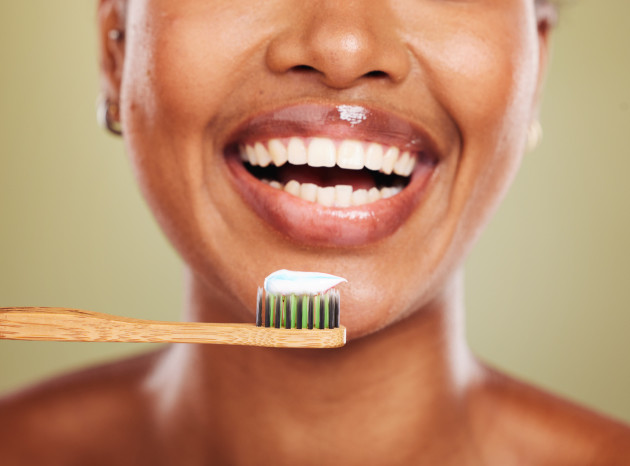
Friday read: Brushing up on teeth and tasting
West London Wine School’s wine educator and dentist Henrik Overgaard-Nielsen and emeritus professor of dentistry Nairn H F Wilson of King’s College London give the low down on keeping your gnashers bright and healthy in a wine-slaked world.
Many people in the wine trade experience very sensitive teeth with severe pain when consuming cold, hot or even sweet food and drink.
Professional wine tasting can lead to severe wear and tear of the teeth and possibly pre-cancer or cancer of the mouth, especially if the person is also a smoker.
• Read more: Natural wine – a murderous funk?
The wear and tear might lead to loss of teeth and therefore to loss of the ability to eat, taste and enjoy food with natural teeth rather than dentures and other forms of replacement teeth. This might not happen immediately but growing old without your own teeth can be difficult – but at that point the damage has been done. This is a recognised occupational hazard for people in the wine trade and is particularly detrimental if they are too busy, or consistently find excuses not to seek regular dental care.
Abnormal wear of teeth and sensitivity to hot and, in particular, cold foods and drinks, e.g. ice cream and iced beverages, is widely regarded as a particular problem for people in the wine trade and is largely related, either directly or indirectly to the acidity of wine. Other constituents of wine, e.g. tannins, may cause staining of the edges of fillings, crowns and veneers and any tartar (calculus) which has been allowed to build up, typically around the necks of teeth.
The alcohol in wine, acting alone or possibly in conjunction with other constituents, may cause changes to the gums and soft tissue lining of the mouth, especially if the person smokes or chews tobacco. Most of these changes are reversible but in some rare cases they may cause oral cancer which is life threatening and often disfiguring when treated.
Working in the wine trade and experiencing dental problems is not inevitable; some are more susceptible than others, but those practising effective preventive measures and receiving regular dental care are likely to be better off.
If you work in or plan to start work in the wine trade, you should get up to date with your dental care – get ‘dentally fit’, and then attend regular dental check-ups as often as your dentist suggests.
The temptation to attempt to treat abnormal tooth wear, sensitivity or any other wine tasting related conditions such as mouth ulcers or burning mouth with over-the-counter products, is not a good idea and can cause more problems than it solves.
But what does looking after your teeth in the wine trade involve, apart from seeking regular check-ups with a dentist?
When not wine tasting, the basic advice for all adults is: Brush teeth at least twice daily, last thing at night (or before bedtime) and on at least one other occasion, using a manual or powered toothbrush, with a medium textured, small head, and a toothpaste containing 1,350 to 1500 parts per million(ppm) fluoride – most toothpastes comply with this. Spit out after brushing, do not rinse with water to avoid diluting the fluoride – spit don’t rinse!
The daily use of aids such as small brushes and/or dental floss to clean between the teeth is recommended. Dentists and their teams can advise you which aids will be best for you. Your dentist might also suggest you use a mouthwash – not a substitute for brushing - as part of your daily dental routine.
The Australian Wine Research Institute has suggested some general advice for all people tasting wines professionally.
Night before tasting:
Brush teeth with a readily available fluoride toothpaste (1350-1500 ppm fluoride).
Apply by toothbrush a 1.5cm GC Tooth Mousse® or high concentration sodium fluoride toothpaste such as Colgate Neutrafluor 5000 ppm fluoride. Leave it on for four minutes and then spit out and avoid drinking for one hour. The 5000ppm fluoride toothpaste you will need to get on prescription from a dentist.
Morning of tasting:
Do not brush teeth the morning before tasting, leave the natural layer of plaque as a protective film on your teeth.
Apply a 1.5cm GC Tooth Mousse® with your finger and leave for four minutes. Spit out and do not rinse.
During tasting:
Drink still water to rinse your mouth and dilute acids. Do not drink sparkling water as it is acidic.
Eat cheese or drink milk to enrich teeth with calcium and phosphate.
Eat crackers to stimulate saliva production.
Do not eat olives, pickles or other acidic foods.
After tasting:
Do not brush teeth for at least two hours after tasting. Teeth are in a demineralised state and much softer, so even though the teeth are stained, you have to avoid brushing as you are likely to damage the enamel.
Wash mouth with readily available 0.2% fluoride mouth rinse (such as Colgate Fluoriguard). Spit out after two minutes. The use of a mouthwash after tasting which contains no fluoride may do more harm than good.
Avoid other mouthwashes which are generally acidic. Often mouthwash is used after tasting as a replacement for not brushing teeth, but it can do more harm than good.
Chew sugar-free gum to help stimulate saliva production to neutralise acid.
The susceptibility to the oral and dental effects of wine tasting and the precise nature of the effects varies widely from one individual to another so it is highly recommended that you see your dentist to develop a customised oral healthcare plan.
In dentistry, prevention is always much better than the ‘cure’. Working in the wine trade does not need to be synonymous with poor oral health, but it currently is. As a professional in the wine trade your mouth and teeth are at risk, and unless you look after them properly you might come to regret it.




